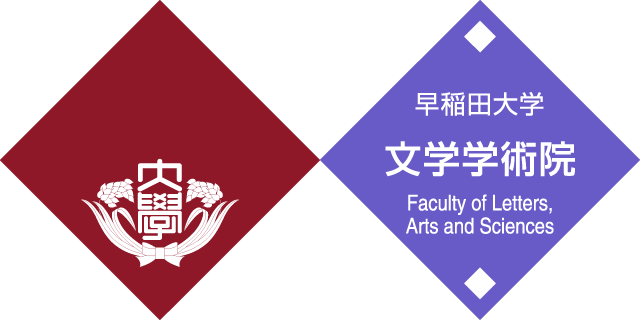- News
- Event Report: Annotated Illustrations of Herbsin “Gyōfūshū” and Confucianism During the Muromachi Period by GUO XUENI
Event Report: Annotated Illustrations of Herbsin “Gyōfūshū” and Confucianism During the Muromachi Period by GUO XUENI

- Posted
- Mon, 07 Aug 2023
GUO XUENI from Shaanxi Normal University delivered the lecture “Annotated Illustrations of Herbs in “Gyōfūshū” and Confucianism During the Muromachi Period” on July 5, 2023, at Room 232, Building 33, Toyama Campus, Waseda University, in a hybrid format with Zoom.

Guo Xueni specializes in the history of Sino-Japanese literary exchanges and annotations of Chinese classics in Japan. She has been a visiting professor at Waseda University since July of last year, focusing her research on commentaries and lecture notes, or “shōmono (abridgments),” of Chinese classics produced in Japan. This lecture took up Gyōfūshū, a shōmono of Santi shi compiled by the Song scholar Zhou Bi and annotated in Chinese by the late Muromachi period Shokokuji Zen monk Banri Shūku, examined the annotation method, and then explored the significance of the shōmono in the history of Song studies thought in Japan.
The lecture began with an overview of the history of the reception of Chinese classics in Japan, followed by an introduction to the basics of shōmono. Guo pointed out that although shōmono had been studied from the standpoint of Japanese linguistics as oral materials of the Muromachi period, there had not been many approaches from Japanese linguistics to shōmono written in Chinese. 
Santi shi was introduced to Japan around the 14th century, and since then it has been widely used as a textbook for Tang poetry in the Gozan Zen Rin. Although a number of commentaries on Santi shi were produced in Japan, Banri Shūku’s Gyōfūshū was highlighted for its survival as an old manuscript from the Miramachi period, and for its numerous references to herbal literature from the Northern Song period, especially its extensive use of herbal illustrations. In her lecture, Guo discussed in detail the writings of Gyōfūshū, and concretely showed how Banri Shūku used herbal literature and herbal maps to develop detailed exegetical studies, presented natural history and geographical considerations, and contained knowledge of medical texts deeply related to the study. She pointed out the importance that Banri Shūku and other Zen monks of Gozan placed on the studies of the Northern Song dynasty, and suggested that further research should be conducted on the reception of neo-Confucianism, Northern Song poetry, and similar texts.

This lecture was followed by a Q&A session with the participants. Graduate students in the audience asked a series of questions about Banri Shūku’s annotation attitude, annotation methods, and the texts he used, which led to a lively exchange of ideas.
This lecture was organized by the Global Japanese Studies Model Unit, Waseda University Top Global University Project and the Ryusaku Tsunoda Center of Japanese Culture, Research Institute for Letters, Arts and Sciences, Waseda University, and co-organized by the Research Institute of Japanese Classical Books, Comprehensive Research Organization, Waseda University.
Event Overview
- Lecturer: GUO XUENI (Professor, Shaanxi Normal University)
- Venue: Rm. 232, Building 33, 2nd Fl. Toyama Campus, Waseda University, and online (Zoom meeting)
- Date and time: July 5, 2023, 17:00 – 18:30 (JST)
- Time table
17:00 – 17:10 Opening remarks Kimiko Kono (Professor, Waseda University)
17:10 – 18:00 Lecture GUO XUENI (Professor, Shaanxi Normal University)
18:00 – 18:20 Q & A
18:20 – 18:30 Closing remarks Kimiko Kono (Professor, Waseda University) - Language: Japanese
- Participation was free.
- Organized by: Global Japanese Studies Model Unit, Waseda University Top Global University Project, Research Institute for Letters, Arts and Sciences
Co-organized by: Research Institute of Japanese Classical Books
- Tags
- Event Reports
